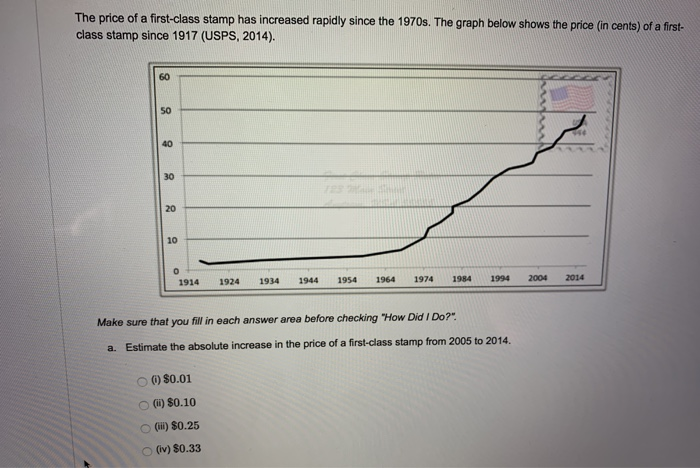The Post-Roe Landscape: Over-the-Counter Birth Control And Its Significance

Table of Contents
Enhanced Access to Contraception
Access to reproductive healthcare varies significantly across the United States, creating significant barriers for many individuals seeking birth control. This disparity disproportionately impacts those in rural areas or underserved communities.
Geographic Barriers
Many Americans face considerable challenges in accessing reproductive healthcare services. These challenges include:
- Lack of clinics: Many rural areas and underserved communities lack sufficient clinics offering reproductive healthcare services, including birth control options.
- Long travel distances: Individuals may have to travel long distances to reach a healthcare provider, creating both financial and time burdens.
- Limited provider availability: Even in areas with clinics, the availability of healthcare providers specializing in reproductive health can be limited, leading to long wait times for appointments.
- Financial constraints: The cost of transportation, appointments, and prescription medications can be prohibitive for many, preventing them from accessing necessary birth control.
OTC birth control could significantly circumvent these geographic barriers. By providing readily available options at local pharmacies, individuals could obtain contraception independently and discreetly, regardless of their location or proximity to a healthcare facility. This is especially crucial for those in areas with limited access to healthcare providers or those who face financial constraints.
Time Constraints
Navigating the healthcare system to obtain birth control can be a time-consuming and inconvenient process. This includes:
- Waiting times for appointments: Scheduling an appointment with a healthcare provider often involves significant wait times, delaying access to necessary contraception.
- Difficulty scheduling around work or other commitments: Many individuals struggle to schedule appointments around their work, family, and other obligations.
- Bureaucratic hurdles: The process of obtaining prescriptions and navigating insurance coverage can be complex and frustrating, further delaying access to birth control.
Immediate access to OTC birth control eliminates these time constraints. Individuals can purchase contraception when and where they need it, without needing to schedule an appointment or navigate complex healthcare systems. This increased convenience is particularly important for those with busy schedules or limited access to healthcare.
Increased Affordability and Cost-Effectiveness
The cost of obtaining birth control through traditional channels can be a significant barrier for many individuals.
Cost of Prescriptions and Healthcare Visits
Traditional methods of obtaining birth control often involve substantial financial burdens:
- High cost of prescription medications: Prescription birth control pills and other methods can be expensive, even with insurance coverage.
- Co-pays: Even with insurance, individuals often face significant co-pays for each doctor's visit and prescription refill.
- Insurance limitations: Many insurance plans have limitations on coverage for birth control, leaving individuals to bear a significant portion of the cost themselves.
- Lack of insurance coverage: Millions of Americans lack health insurance, making access to affordable birth control even more challenging.
OTC birth control offers the potential for significant cost savings. By removing the need for doctor's visits and prescriptions, OTC options can be substantially cheaper than traditional methods. This increased affordability could make birth control accessible to a far wider population.
Reducing Unintended Pregnancies
The cost-effectiveness of preventing unintended pregnancies through readily available contraception is undeniable. The financial burden of an unintended pregnancy is substantial, including:
- Costs associated with prenatal care: Prenatal care is essential for a healthy pregnancy but can be expensive.
- Costs of childbirth: The cost of childbirth, including hospital stays, medical procedures, and postpartum care, is exceptionally high.
- Costs of child-rearing: Raising a child involves significant ongoing expenses, including food, clothing, childcare, and education.
Providing easy access to affordable birth control through OTC options is a cost-effective way to prevent unintended pregnancies and the substantial financial burdens they entail, ultimately saving the healthcare system and families significant amounts of money.
Empowering Patients and Promoting Autonomy
Increased access to OTC birth control empowers individuals to make informed decisions about their reproductive health and promotes autonomy over their bodies.
Patient Choice and Control
OTC birth control puts individuals in control of their reproductive health:
- Increased autonomy: Individuals can make choices about their contraception without needing to seek approval or navigate the healthcare system.
- Privacy: Individuals can purchase and use birth control privately and discreetly, without fear of judgment or discrimination.
- Confidentiality: Unlike traditional methods, OTC birth control eliminates the need to disclose personal reproductive health information to healthcare providers or insurance companies.
- Reduced reliance on healthcare providers: OTC birth control reduces the dependence on healthcare providers for basic contraception, empowering individuals to manage their own reproductive health.
Reducing Stigma
Increased accessibility of birth control can help reduce the stigma often associated with its use:
- Normalization of contraception: The widespread availability of OTC birth control can normalize its use, reducing shame and embarrassment.
- Improved communication about reproductive health: Increased access can facilitate open and honest conversations about family planning and reproductive health.
By normalizing contraception and making it readily available, OTC birth control helps to destigmatize reproductive health decisions and encourages open communication about these vital aspects of personal well-being.
Potential Challenges and Considerations
While the benefits of OTC birth control are substantial, several challenges and considerations need to be addressed.
Misinformation and Misuse
Concerns exist about the potential for misinformation and misuse of OTC birth control:
- Need for clear labeling and patient education: Clear and concise labeling is essential to ensure individuals understand how to use the product correctly and safely.
- Importance of readily available resources: Providing access to reliable information through educational materials and online resources is crucial to combat misinformation.
Comprehensive public health campaigns and readily available educational resources are vital to ensure safe and effective use and to address potential misunderstandings.
Regulatory Hurdles and Approval Processes
Navigating the regulatory landscape to get OTC birth control approved and widely available presents significant challenges:
- FDA approval process: The FDA approval process is rigorous and can be lengthy and complex.
- Lobbying efforts: Political lobbying and advocacy play a significant role in shaping policies related to reproductive healthcare, including access to OTC birth control.
- Political considerations: The political climate surrounding reproductive rights significantly influences the progress and speed of regulatory approvals.
Addressing these regulatory hurdles requires sustained advocacy and collaboration among various stakeholders to ensure that the process is efficient and transparent.
Conclusion
The availability of over-the-counter birth control offers a crucial opportunity to improve access to reproductive healthcare in the post-Roe landscape. While challenges related to misinformation and regulatory hurdles exist, the potential benefits – enhanced access, increased affordability, and empowered patients – are substantial. By addressing these concerns and advocating for clear labeling, comprehensive education, and efficient regulatory processes, we can strive towards a future where everyone has the agency to make informed decisions about their reproductive health. Let's advocate for expanded access to affordable and convenient over-the-counter birth control options.

Featured Posts
-
 Comesana Se Clasifica Para El Cuadro Principal Del Atp 500 De Hamburgo
May 19, 2025
Comesana Se Clasifica Para El Cuadro Principal Del Atp 500 De Hamburgo
May 19, 2025 -
 Panigyria Kai Eortastikes Ekdiloseis Stis Enories Tis Kastorias Ton Maio
May 19, 2025
Panigyria Kai Eortastikes Ekdiloseis Stis Enories Tis Kastorias Ton Maio
May 19, 2025 -
 Reduced Library Services The Fallout From Recent Budget Cuts
May 19, 2025
Reduced Library Services The Fallout From Recent Budget Cuts
May 19, 2025 -
 Tampoy Kai Apokalypseis Mia Analysi Ton Akraion Synthikon
May 19, 2025
Tampoy Kai Apokalypseis Mia Analysi Ton Akraion Synthikon
May 19, 2025 -
 Impact Of The 1 70 First Class Stamp Price Increase
May 19, 2025
Impact Of The 1 70 First Class Stamp Price Increase
May 19, 2025
